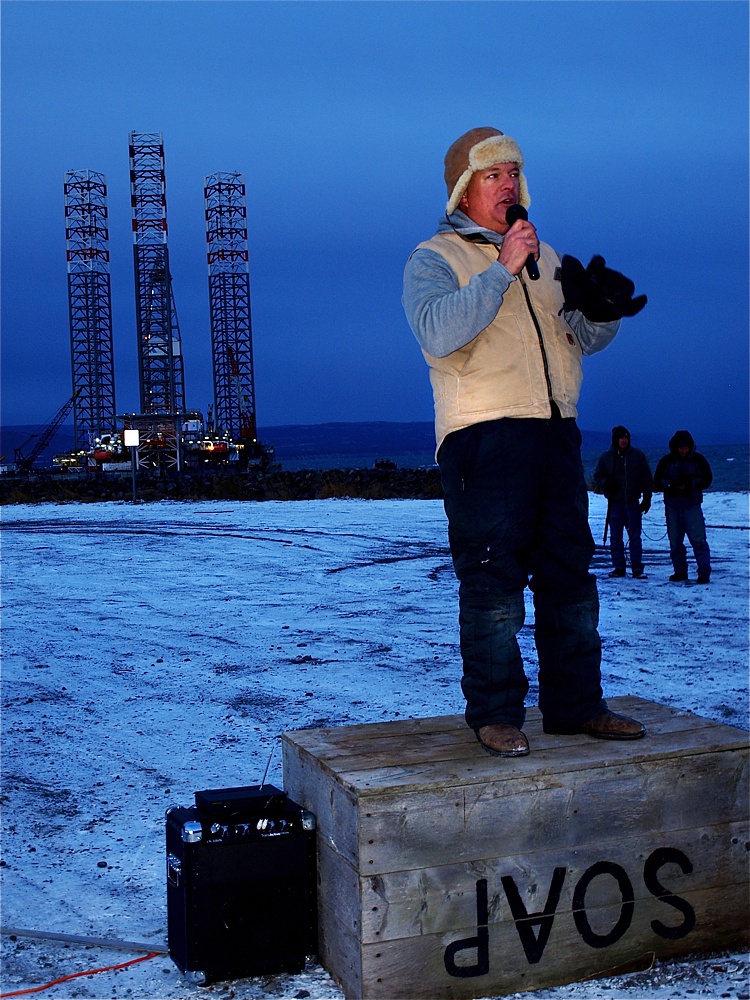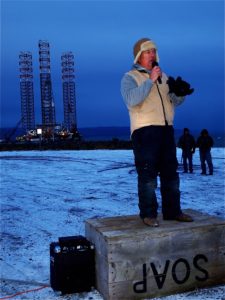
Alaska is blessed with wild and spectacular natural amenities, but logging, mining and other extractive industries have long taken a toll on its landscape and waterways. It’s a state where the fossil-fuel industry exercises a lot of power and control. In south-central Alaska, however, Cook Inletkeeper is watching closely, and acting effectively.
One of its recent victories came in the arena of public disclosure and transparency in the state’s regulation of hydraulic fracturing, or fracking. These operations require large volumes of water, which in turn create large volumes of wastewater. All fossil-fuel extraction aggravates climate change, and fracking compounds the problem. Yet, until recently, Alaskans were not notified about fracking operations. Cook Inletkeeper set about to change that.

“It’s just basic transparency, basic fairness,” says Inletkeeper Bob Shavelson. “We all collectively own the lands and waters and air of the state and that’s ingrained in our constitution. So if someone’s going to pollute or potentially pollute those things, then we have a right to know about that and engage in that process.”
In late 2016, the Inletkeeper submitted a petition asking the state to amend its rules and make oil-and-gas-fracking permits subject to public notice and comment. After a hearing attended by the Inletkeeper in January, Alaska proposed notifying the public and accepting their comments regarding fracking applications. But the new rule is ambiguous and defers too much to the oil-and-gas industry. It provides the public with only 10 days to review highly complex matters, but at least 30 days to the industry, and it allows the corporations to determine what can be kept secret from Alaskans.
So, while there is reason to celebrate a victory, Cook Inletkeeper battles on to continue improving transparency and protecting water in this special corner of the planet.
In a bigger blow to fossil fuels, PacRim Coal announced on April 3 that it is packing up their plans to mine through 14 miles of wild salmon stream on Alaska’s Chuitna River and heading home. Owned by Texas billionaires and incorporated in Delaware, PacRim Coal sent a letter to the U.S. Army Corps of Engineers saying the company had “decided to suspend pursuit of permitting efforts on the Chuitna Coal Project.”
Since the company began pursuing permits in 2006, Cook Inletkeeper and partners have tenaciously opposed the Chuitna Coal Project and the precedent it would have set as the first-of-its-kind to mine directly through a wild salmon stream.
“We hope [they] will finally recognize that coal is a resource of the 18th century and not something to invest in for the future,” said Carly Wier, Executive Director of Cook Inletkeeper. “PacRim seems to be making calculations that coal companies all over the world are making, that times are changing and sub-bituminous coal is no longer a profitable commodity.”